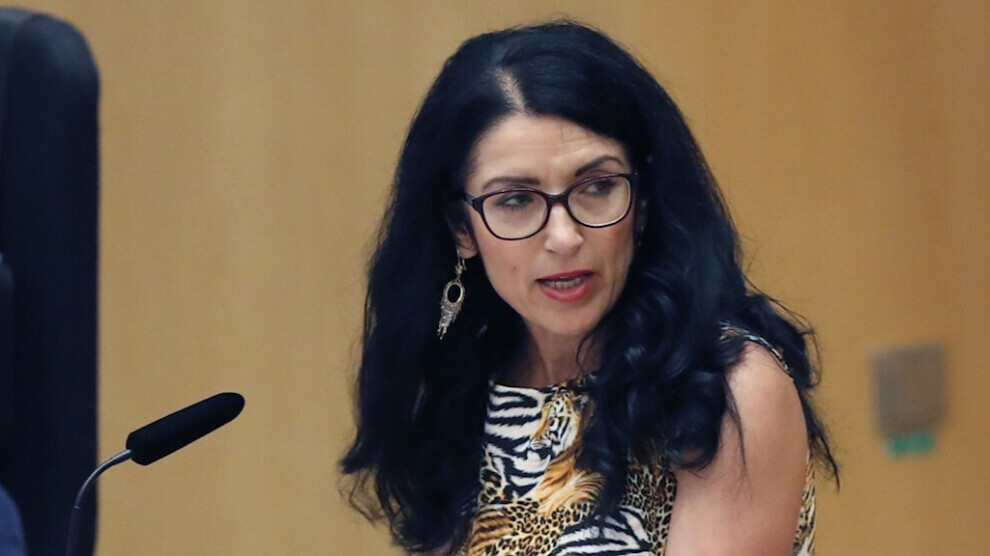Vote of no confidence in Sweden fails due to Kurdish MP Kakabaveh's abstention
Kurdish MP Amineh Kakabaveh abstained from a vote of no confidence after negotiations with Sweden's Social Democratic Party, averting a government crisis.
Kurdish MP Amineh Kakabaveh abstained from a vote of no confidence after negotiations with Sweden's Social Democratic Party, averting a government crisis.

A government crisis in Sweden was averted with the abstention of independent MP Amineh Kakabaveh. A vote of no confidence in Interior and Justice Minister Morgan Johansson tabled by the right-wing populist Sweden Democrats narrowly failed to secure the necessary majority in the Swedish parliament. 174 deputies withdrew their confidence in the minister; 175 votes would have been necessary. In the event, Prime Minister Magdalena Andersson announced the resignation of the entire government.
Amineh Kakabaveh is a non-party socialist MP who comes from Eastern Kurdistan. In November last year, the politician reached an agreement with the ruling Social Democratic Party that included cooperation with Kurdish parties and organizations. Kakabaveh made the decision to abstain from the no-confidence vote over the weekend after negotiations with the Social Democratic Workers' Party. During the parliamentary debate, the MP again raised the question of whether Turkey should determine Sweden's policy. "Sweden's laws should be made in this chamber - not in Ankara. I defend Sweden's right to determine its own domestic and foreign policy."
Amineh Kakabaveh: Former Peshmerga and "Swedish Woman of the Year
Amineh Kakabaveh made international headlines in May because Turkey's ambassador in Stockholm, Hakkı Emre Yunt, demanded her extradition as part of the power poker over Sweden and Finland joining NATO. Turkey is currently the only NATO member blocking the start of the two Nordic countries' admission process to the defense alliance. Ambassador Yunt later described his demand as a misunderstanding.
Kakabaveh was born in Saqiz in Eastern Kurdistan (Western Iran). As a teenager, she joined the Kurdish guerrilla organization Komala ("Society of Revolting Toilers of Iranian Kurdistan"), later fleeing to Sweden via Greece and Turkey. There, at the age of 19, she became a citizen and a member of the Left Party. In 2008, she became a member of parliament, since separating from the Left Party as an independent. In 2016, she was named "Swedish Woman of the Year" for her commitment. Her biography "No Bigger than a Kalashnikov. A Peshmerga in Parliament" has been published in Swedish, English and German.